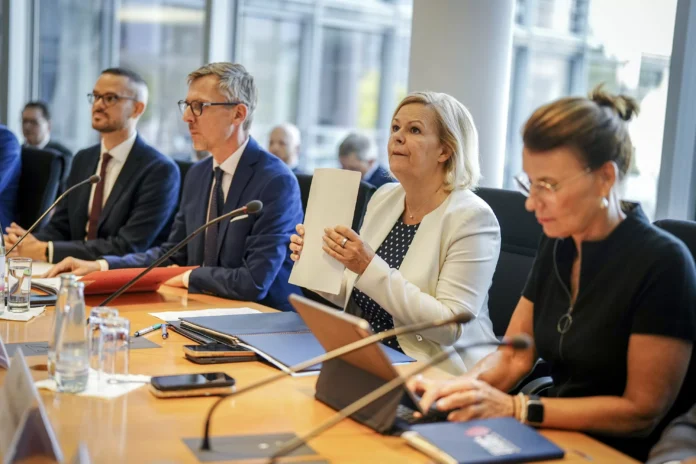Germany Deports 28 Afghan Nationals Back to Afghanistan in First Deportation Since Taliban Takeover
In a move that has sparked controversy and debate, Germany has deported 28 Afghan nationals back to their home country on Friday, marking the first such deportation since the Taliban returned to power in August 2021. The decision has been met with mixed reactions, with some praising the German government for taking action and others criticizing the move as inhumane and insensitive.
According to a government spokesperson, the deportation was carried out in accordance with the European Union’s joint policy on migration and asylum. The 28 individuals were reportedly denied asylum in Germany and were deemed to have no legal right to stay in the country. The spokesperson also stated that the deportees were given the opportunity to voluntarily return to Afghanistan, but they refused to do so.
The deportation comes at a time when the situation in Afghanistan is highly volatile and uncertain. The Taliban’s takeover of the country has raised concerns about the safety and security of its citizens, especially those who have worked with foreign governments or organizations. Many have fled the country in fear of persecution, while others have been left behind, uncertain of their fate.
However, the German government has defended its decision, stating that the deportees were not at risk of persecution or harm in Afghanistan. They also emphasized that the individuals had exhausted all legal avenues to stay in Germany and were not eligible for protection under the country’s asylum laws.
The deportation has sparked protests and criticism from human rights organizations and opposition parties in Germany. They argue that sending people back to Afghanistan at this time is irresponsible and goes against the principles of humanity. They also point out that the Taliban’s return to power has led to a deteriorating human rights situation, particularly for women and minorities.
On the other hand, supporters of the deportation argue that Germany cannot be expected to take in all refugees and that the country has a right to enforce its immigration laws. They also point out that the EU’s joint policy on migration and asylum is aimed at preventing illegal immigration and ensuring that those who do not qualify for asylum are returned to their home countries.
The deportation has also raised questions about the effectiveness of the EU’s joint policy on migration and asylum. Critics argue that the policy is flawed and does not take into account the individual circumstances of each case. They also point out that the policy does not address the root causes of migration and fails to provide a long-term solution to the issue.
The German government has stated that it will continue to deport individuals who do not qualify for asylum, but it will also provide support and assistance to those who choose to voluntarily return to Afghanistan. This includes financial aid and help with reintegration into society.
The deportation of the 28 Afghan nationals has once again brought the issue of immigration and asylum to the forefront of public discourse in Germany. It has also highlighted the challenges and complexities of dealing with the current situation in Afghanistan. While the decision may have been met with criticism, it is important to remember that Germany, like many other countries, is facing a difficult and complex situation, and tough decisions have to be made.
In conclusion, the deportation of 28 Afghan nationals back to Afghanistan by Germany may have sparked controversy, but it is a necessary step in enforcing immigration laws and upholding the EU’s joint policy on migration and asylum. The German government has a responsibility to protect its citizens and ensure that the country’s immigration laws are respected. At the same time, it is crucial to provide support and assistance to those who are in need and to address the root causes of migration. Let us hope that a long-term solution can be found to address the current crisis in Afghanistan and prevent such deportations in the future.


